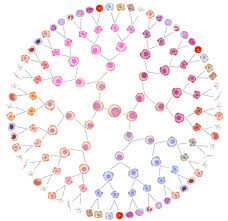Autologous haematopoietic stem cell transplantation (HSCT) is typically used in haematologic and non-haematologic malignancies. In clinical trials, HSCT has also been evaluated for severe autoimmunity as a method to “reset” the immune system and produce a new, non-autoimmune repertoire. While the feasibility of eliminating the vast majority of mature T cells is well established, accurate and quantitative determination of the relationship of regenerated T cells to the baseline repertoire has been difficult to assess. Here, in a phase II study of HSCT for poor-prognosis multiple sclerosis (MS), the researchers used high-throughput deep TCR-beta chain sequencing to assess millions of individual TCRs per individual patient sample. This was done before and at two time points after autologous HSCT in a cohort of 24 patients. The study showed that HSCT has distinctive effects on CD4+ and CD8+ T cell repertoires. In CD4+ T cells, dominant TCR clones present before treatment were undetectable following reconstitution, and patients largely developed a new repertoire. In contrast, dominant CD8+ clones were not effectively removed, and the reconstituted CD8+ T cell repertoire was created by clonal expansion of cells present before treatment. Importantly, patients who failed to respond to treatment had less diversity in their T cell repertoire early during the reconstitution process. Demonstrating that TCR characterization during immunomodulatory treatment may enable monitoring of T cell clones following HSCT and cellular therapies.












